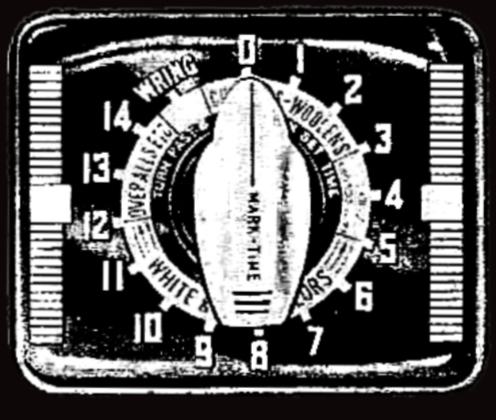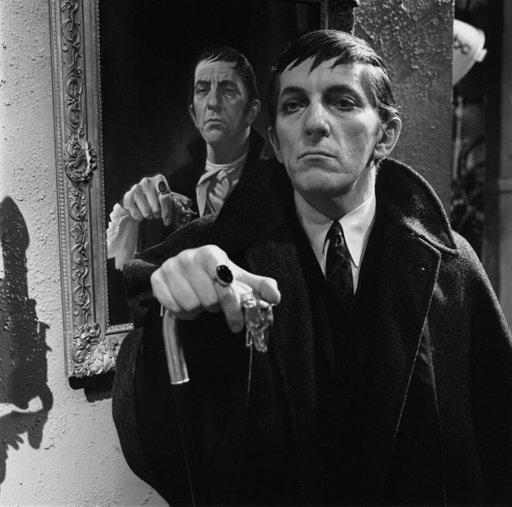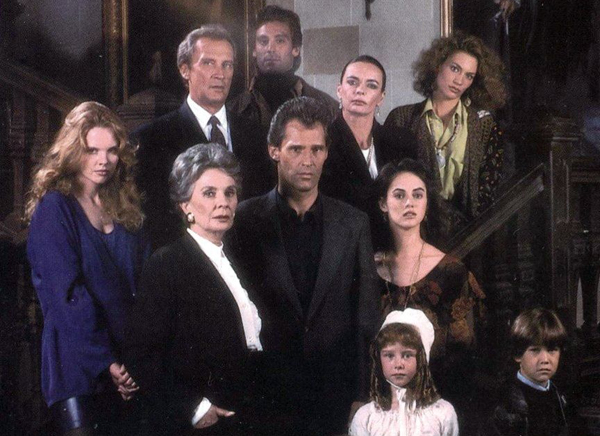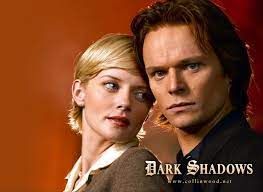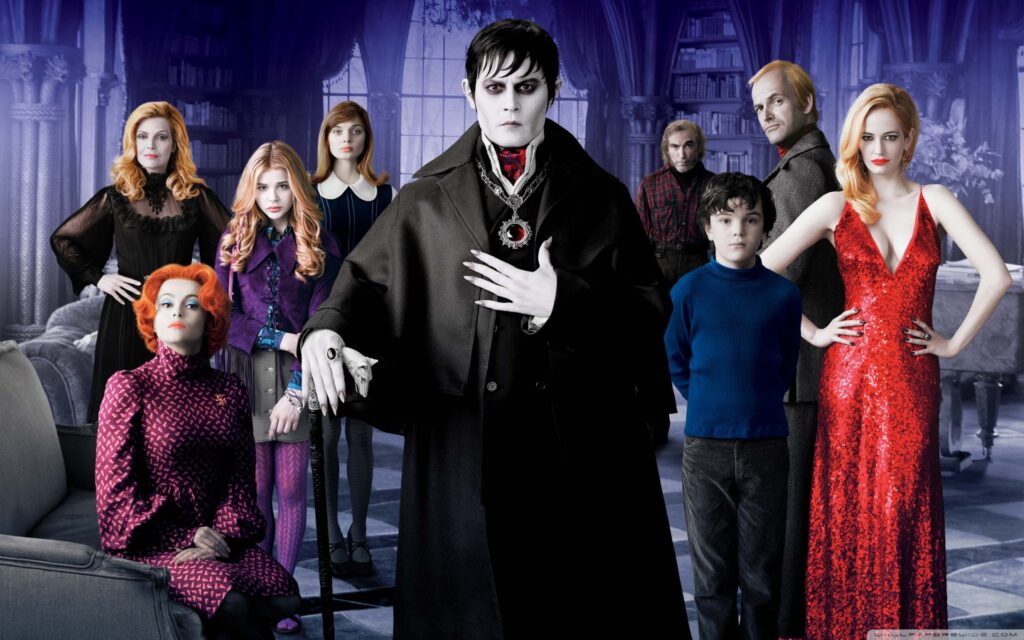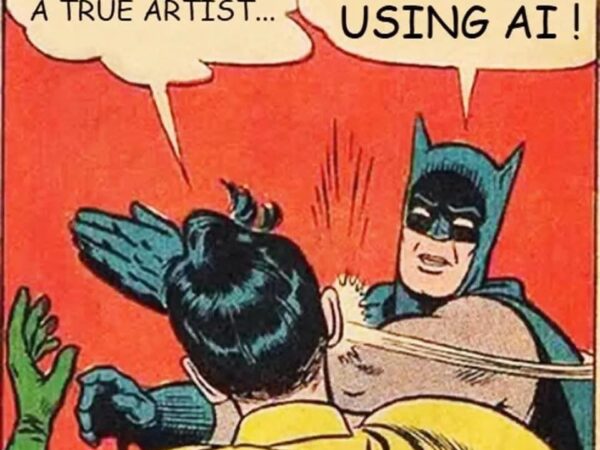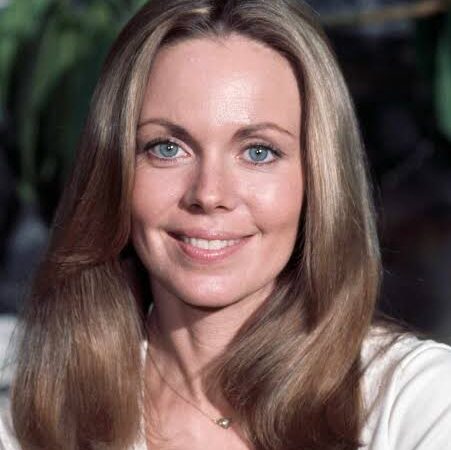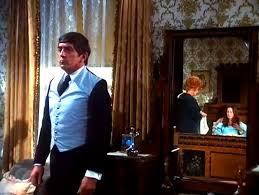Back in those carefree days of 2019, the buzz was the CW Network was floating the idea of a new reboot of the old Dark Shadows TV show. The horrendous year of 2020 dawned, and the network mercifully dropped the idea. Reading through a Dark Shadows Facebook group this morning, I was saddened to learn the topic was revived. According to Bloody Disgusting, producer and writer Mark B Perry (The Wonder Years) is still set on developing a Dark Shadows sequel. Alas, the CW Network is interested again. The new series will be set in Collinwood, focusing on the next generation of the Collins family in Dark Shadows: Reincarnation. The premise: a woman on a train arrives at Collinwood. Said young woman has questions about her biological mother. So, she arrives at Collinwood because it appears her mother was Victoria Winters, and there is some biological tie to the family. Yes, this is a riff on the original but unresolved pre-Barnabas plot – Victoria Winters was allegedly the daughter of Elizabeth Collins Stoddard. The character of Victoria Winters was unceremoniously written out of the show in late 1968 when actress Alexandria Isles became pregnant. By then, Barnabas was the focus of the show. Victoria Winters was reduced to a bit part, a professional victim character with a penchant for hand wringing and uttering “I don’t understand!” on cue.
(Cue Sad Trombone)
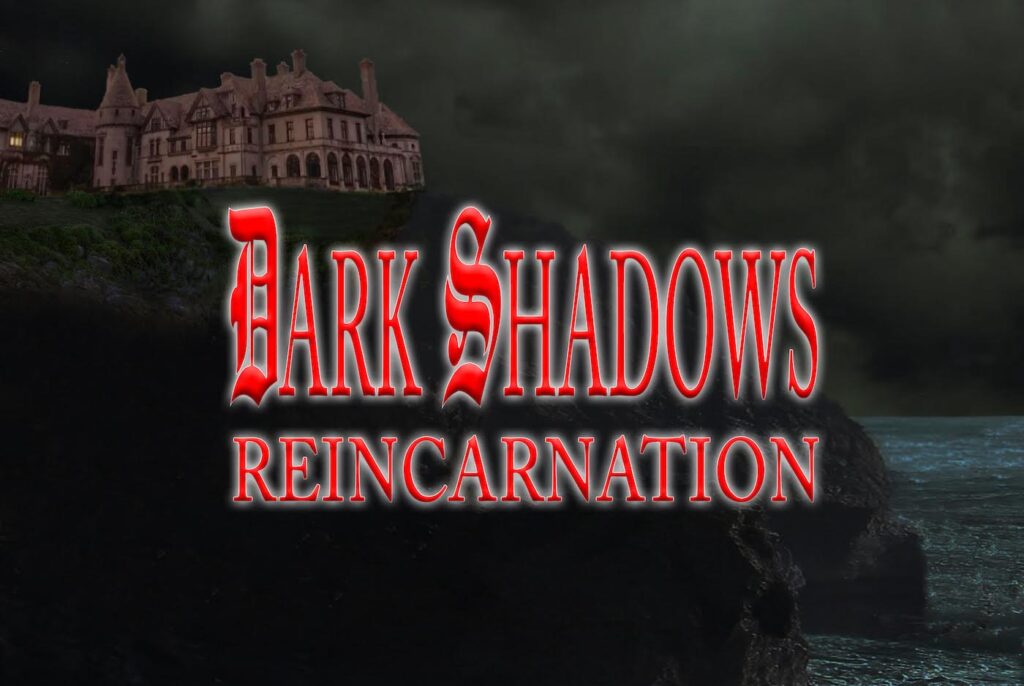
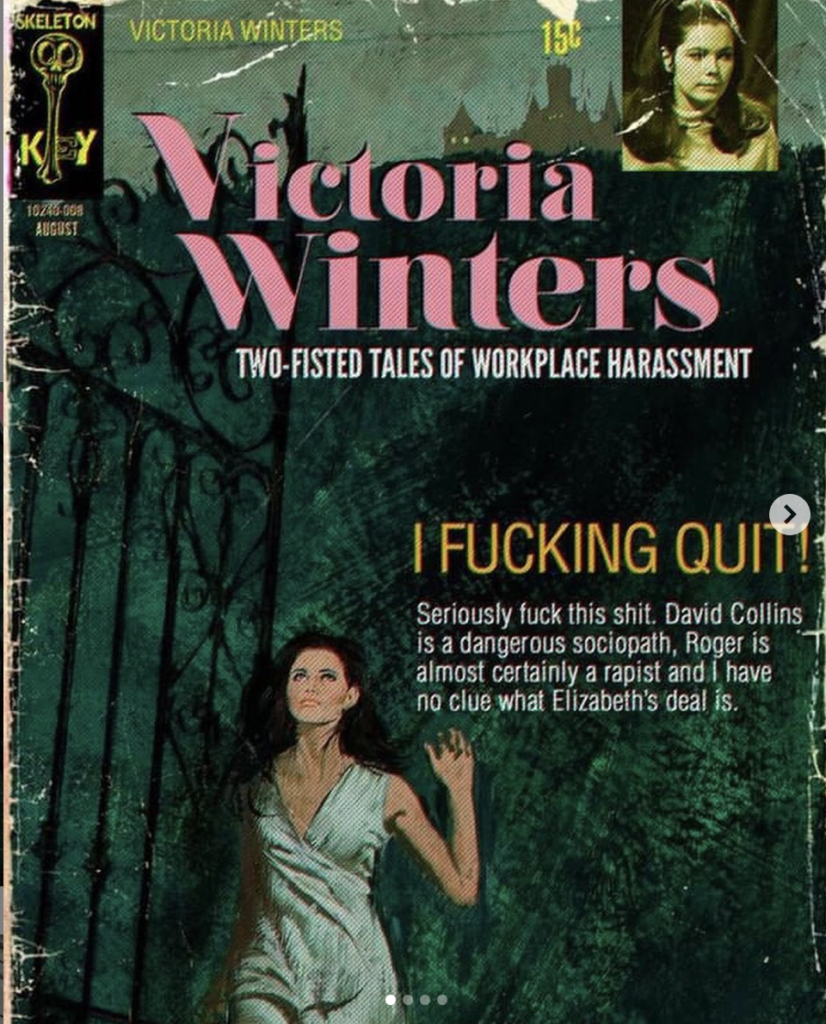
(He does not necessarily share my opinion on this post.)
I think it’s a bloody awful idea.
Dark Shadows, that quaint mid-century cult soap opera with vampire Barnabas Collins as a leading man, is one of those shows that never quite dies. It’s a cherished childhood memory, often evoking nostalgia and longing to revisit the great house of Collinwood. The show has a loyal, if somewhat eccentric, multigenerational fan base from boomers to millennials.
Like a dark bedtime story, we like to revisit those 50+ year-old reruns, immerse ourselves in one of the strangest families in the US, and marvel at their supernaturally spawned dysfunctions. Fans still ponder the fate of the characters who stopped existing at the final “Cut!” in 1971. In the old days, people wrote fanfiction for self-published fan magazines that came and went. Years later, this creativity moved to the internet. Every now and then, it attracts the attention of the entertainment industry, and they wonder if the show could be marketable again. This pondering has led to three disastrous reboots – one of which was a major movie by Tim Burton. That one was so bad that the DVD and Blu-Rays went directly to Dollar General’s bargain bin.
My distaste for today’s news is shaped by my extreme dislike of reboots and sequels in general. In my adulthood, I think I’ve viewed almost every relaunched movie or TV show ever filmed. I can count the ones that were successful on one hand and still not use all five fingers. For the past 20 years, theaters and TV have been awash in remakes, sequels, reboots, and other derivative works. At times I wonder if anyone has any fresh ideas anymore. The remake market is simply saturated, boring, and unimaginative. Perhaps writers should turn off the TV, computers, cell phones, and other widgets. Perhaps they should go outside and look at the ducks. Fresh ideas tend to happen when one is relaxed and thinking independently.
As I read an eloquent “Pro” post this morning, I felt like doing a “Con.” As the post was on someone else’s page-the wife of one of the original cast members- I didn’t want to start a fight. A blog post is more appropriate and less likely to cause a major Facebook meltdown.
Dark Shadows fans are passionate about the show, if nothing else. Disagreements about anything can send some spinning out of orbit to the point where I wonder about their mental stability. Three years ago on Facebook, I shared a decade-old story from an author who was a little snarky about the show and the fanbase. Not only was that tantamount to tossing a bomb into the FB group, one person demanded I contact the author (he was an acquaintance at one time) and do so posthaste. He wanted to defend the show. Though the book was published over 12 years before, the member still thought an immediate debate on the subject was appropriate and demanded such redress. I patiently explained how such a confrontation would only reinforce the author’s opinion that DS fans were more than a little nuts. Too much time had passed, and no one was really interested, least of all an author who had moved on in his career. As the disgruntled fan would not take no for an answer, and my FB DMs were blowing up, I simply left the group and blocked the outraged gent.
Let me proceed. I will make my points on why this is a horrible idea, at least to me. I must, however, give my five readers a trigger warning. Stop reading now if the idea of me not supporting a reboot/sequel of Dark Shadows offends your sensibilities.
It’s No Longer 1967
Dark Shadows opened Pandora’s coffin on 17 April 1967. Before that, the Victoria Winters arc had destined the show for cancellation. It was an uninteresting, common subject. A new anti-hero by the name of Barnabas Collins burst upon the scene, and the rest is history. Vampires were not an everyday occurrence on TV in those days. Vampires, ghosts, and anything besides the standard formula of adultery and out-of-wedlock babbies were unheard of on afternoon TV. Too, there had never been a vampire who was appealing, remorseful, and sympathetic. The show skyrocketed to success bringing in millions of viewers until cancellation in 1971. Like catching lightning in a bottle, Dark Shadows hit the airwaves at just the right time in history. It was what the populace wanted – a fantasy that took our minds off things. The Nation was captivated from 4-4:30 PM by the mopey vampire. At that moment in history, the US was in the throes of great domestic upheaval. The news delivered the violence and horror of Vietnam in full color in our living rooms. At times it seemed as though society itself was unraveling. Dark Shadows was a safe port in this storm. Viewers found respite in this quirky show. The show was new, fresh and unique. The serialized supernatural travails of the Collins family let us forget about our own horrors for 30 wonderful minutes, Monday through Friday, excluding holidays.
It’s now 2021. In this age of Ancestry and DNA, getting unpleasant surprises about biological parents is fairly common, and no one cares. The world is a much different place. If anything, it’s more violent and more uncertain. Unrest is greater. We are under siege not only by uncertainty in our own democracy but by a global pandemic that has forever changed our lives. We are no longer upset by images of teenage hippies placing daisies in the gun barrels of the National Guard. We now have adult citizens with a poor grip on reality, painting themselves up like Picts, breaching the halls of Congress acting like a mad lynch mob of tantrum children. Few of us can find respite in a TV show when our next-door neighbor may go off his rocker at any time and shoot up our house, murder us as we shop for groceries, or turn a machine gun on school children.
Been There, Done That
Dark Shadows was brilliant with the theme of a sympathetic, lovelorn vampire as a leading man. Barnabas Collins was the first vampire presented as a tragic and romantic figure. And there was more! We had a tortured brooding werewolf, possessed children, restless ghosts, reincarnations of lost loves, warlocks, and a vindictive witch. Strange portraits abounded. The show traveled back and forth in time. When one arc ended, another started, with several supporting actors recast in new roles. The occult explosion was in full swing in the late 1960s, so we were treated via television to tarot card readings, spells, seances, and other edgy things that were not allowed in our homes. We sat enraptured by the strange goings-on.
Yes, Dark Shadows was first, but 55 years later, this central idea is no longer fresh. Those edgy, unique tropes are now blasé and cliché. They have been done to death by a plethora of TV shows since DS left the air in 1971. The doomed, reluctant, romantic vampire theme has entered every form of fiction since. It’s now mainstream and everywhere, redone by every TV series and motion picture imaginable. The Barnabas archetype even influenced a young housewife in San Francisco. It would inspire Anne Rice to write The Vampire Chronicles, starting with Interview with the Vampire. The brooding Barnabas would give way to the brooding Louis and Lestat as a new vampire mythos that captivated readers in the 1970s.
Supernatural themes on TV are no longer novel, either. Other soap operas used the same spooky tropes until their collective demise—ditto Prime Time TV. By the aughts, reality TV upped the ante by creating “paranormal” television. Instead of thinking ghosts were bits of imagination, the shows presented spooks as something real. As a result, a new type of folklore emerged in our technological age. The traditional ghosts, hauntings, and bugaboos have no place in the current beliefs formed by paranormal “investigators.” The TV is saturated in these shows, still, twenty years later. Never mind these ill-educated buffoons are running around using electronic devices for purposes not intended. Moving an EMF meter too close to a hot wire near a light socket now means the presence of a ghost in the minds of ignorant viewers. The filmy image of a long-lost love reaching out from her portrait, floating through the closed-off west wing, just doesn’t cut it anymore.
Tale of Three Disasters
There have been three different remakes of Dark Shadows. Each remake was a total disaster.
In 1991 DS was recast and revived as a once-a-week series on NBC. The cast was solid, with Ben Cross as Barnabas Collins, Barbara Steele as Julia Hoffman, and Jean Simmons as Elizabeth Collins Stoddard. Though casting was great, the writing and production tighter and more polished, the show faced two obstacles. First, it debuted the same night the US launched the first Iraqi War. Viewers switched to CNN to watch 24-hour war coverage. Second, as viewers finally trickled in, younger viewers didn’t find it that engaging. The plot was just too familiar and was used in dozens of shows over the years. Older fans were losing interest as well. The plot was no longer fresh. Also, as a more polished production, DS lost part of its charm. Gone were the endearing flubs, goofs, and set disasters that gave the original the feel of watching a stage play. The update brought more gore and violence, both censored in the original. Too, the original fans, now in their 30s, realized they were not 11 anymore. NBC canceled the show after 12 episodes.
In 2004, the WB network attempted a second reboot. Aimed at the 16-24 demographic, the principal parts of the show went to younger actors. The inhabitants of Collinwood and Barnabas Collins looked as though the eldest was all of 16. Young, sexy, violent, and gory, the pilot was dead boring. WB passed, and the pilot drifted into obscurity as the network folded.
I’ll give a courtesy mention to the Tim Burton 2012 film debacle out of respect for the original show’s actors. They did the standard remake cameo mid-movie, which was the high point of the whole mess. It was also the last public appearance of the original Barnabas, Jonathan Frid. He died not long after, at age 87. As for the film itself, it was a steaming pile of rubbish served up as a two-hour dumpster fire. I feel like scrubbing myself with carbolic soap for just thinking about it. Ugh!
Reboot=Fresh Out of Ideas
Finally, reboots, sequels, etc., are just lazy. It’s a derivative work that relies on branding, not uniqueness. It’s the entertainment equivalent of the New Coke. Studios figure if it worked the first time, it should work a second. So, writers cobble together old plots with new ones, jettison old tropes and throw in trendy new ones to attract younger viewers. To make some connection to the original, they write in a few cameos and easter eggs to tie the new show to the old one. More often than not, the result is a hot mess. For every remake, there are 12 good fresh scripts tossed in the dustbin. But studios will repeat this lunacy ad infinitum because they are in the money-making business. They don’t want to take a chance on something new and better.
Out of forty years of remakes and sequels, I can only think of three that were successful. The 1979 motion picture remake Invasion of the Body Snatchers was wonderful. The made-for-cable Battlestar Galactica was a masterpiece. Star Trek: The Next Generation was a thoroughly enjoyable, well-written sequel. All three took a great idea that didn’t quite reach potential during the original run, expanded it, and brought the core idea into fruition. The rest are just garbage. Like the result of the New Coke, new customers dumped it, and old customers demanded the old product. The terrible taste still lingers, though, damaging the original and making people wary.
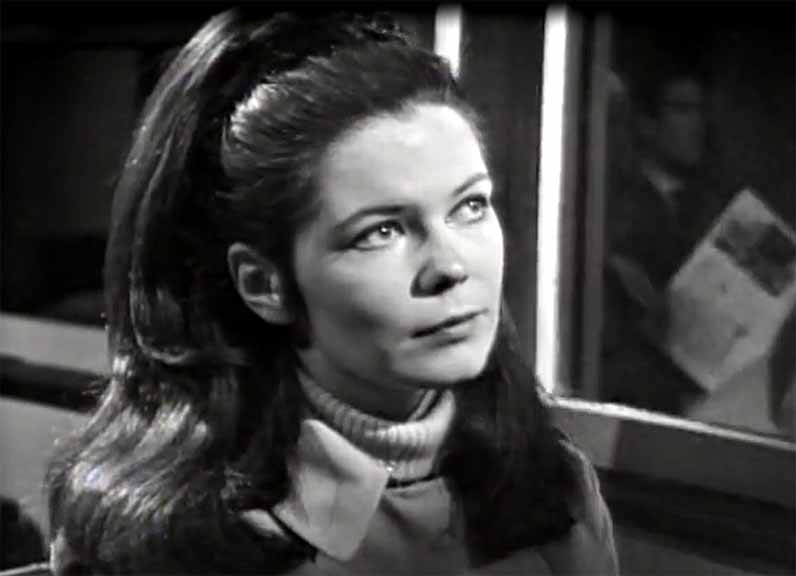
This idea, revamping the original story arc of Victoria Winters, is not impressive. That was a dud from the beginning. Sorry, but it was. It was a standard soap opera trope disguised with a gothic veneer. The show plodded along in leaden boots for nearly nine months, from June 1966 to April 1967. On that fateful day in April, as Barnabas Collins was released from his coffin, the emerging core idea was similar to an act of gestation and birth. The show was reborn anew, given vitality and a new purpose. Without Barnabas, there simply is no show. New viewers will not be entranced. The Vicki Winters arc was boring then, and it’s boring now.
And so, that’s my rebuttal. At last glance, the old, stalwart core fans are excited at the prospects of a new show. They are fully expecting the old cast to make appearances too, which is predictable. They seem oblivious to the fact the bulk of the old cast is dead. The surviving members are in their 70s and 80s and retired. Time marches relentlessly on. Studios fail to realize old shows are watched by so many because of the comfort and familiarity they bring, not because we still feel they are exciting and the best thing since sliced bread. It’s like watching home movies. The stories are comfortable but done – we know how it ends. When the screen goes dark, we have our memories. Catching lightning in a bottle is seldom accomplished a second time. Please stop trying with Dark Shadows. It’s futile.
(Please address all hate mail on this post to: hallc@wiz-o-matic.com)
*Please visit Unlovely Frankenstein on Instagram, Facebook and his Etsy Shop. This multitalented graphic artist does excellent fantasy work and his Dark Shadows items are wonderful. Do it for yourself, your loved ones, and for America!
